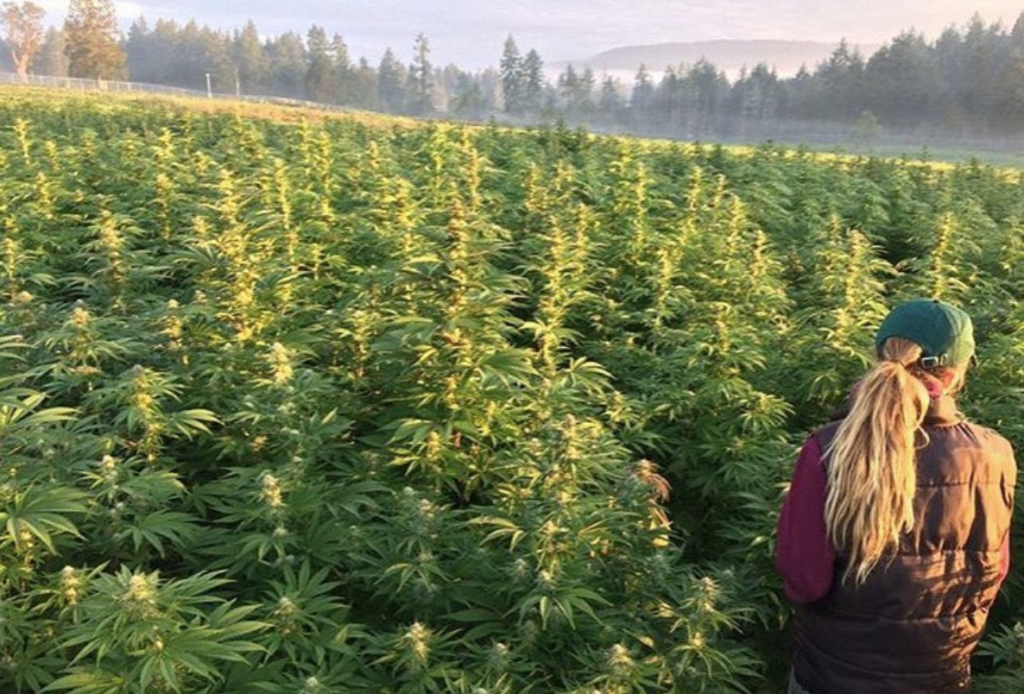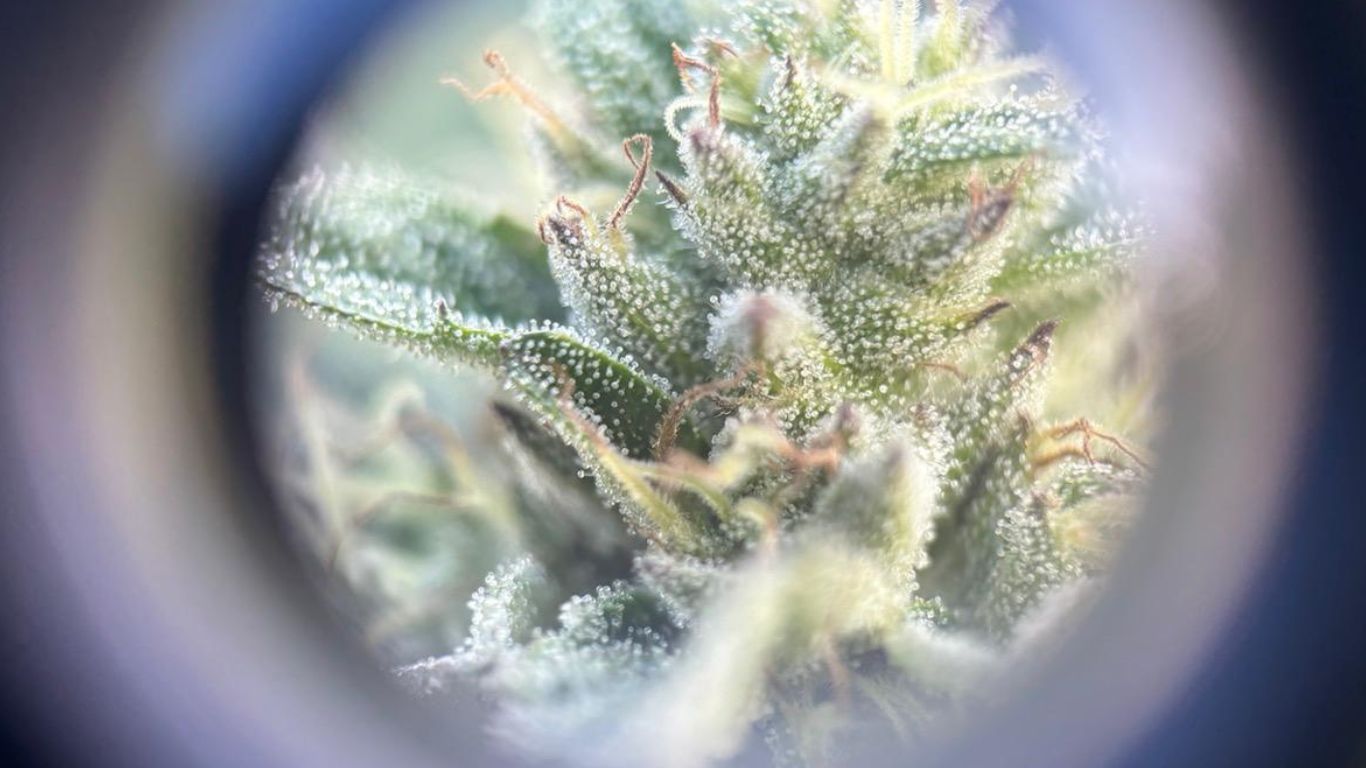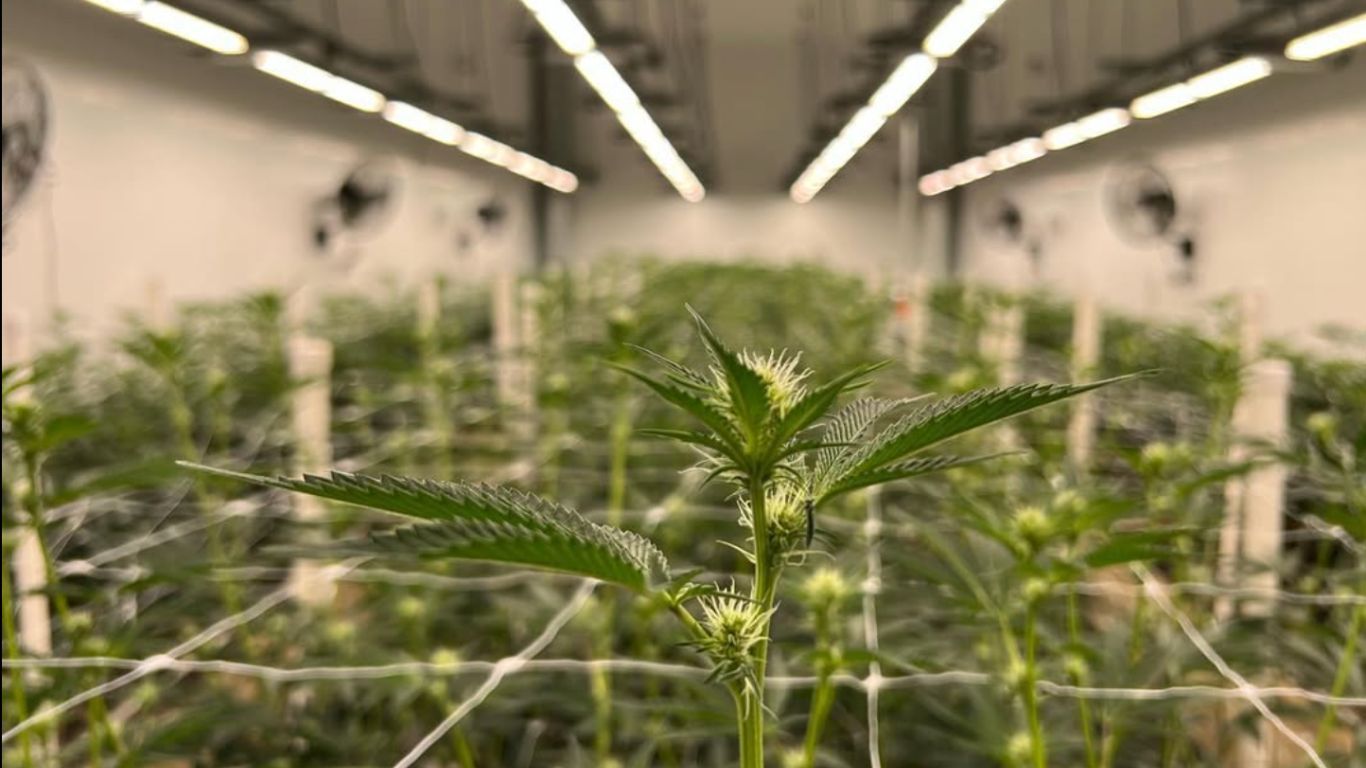
| COMPANY: | Good Buds |
| LICENCE TYPE: | Processing, Cultivation |
| APPROACH: | Indoor, Outdoor, Solventless Extraction |
| TIMELINE: | n/a |
| COST: | n/a |
| FACILITY: | indoor and outdoor, 24 acre site acres, Organic Certified |
Good Buds, an indoor and outdoor cannabis grower and extractor located on BC’s Salt Spring Island, was the first licensed outdoor cannabis producer in Canada as of May, 2019.
Started by two brothers who say they fell in love with the island and its potential for great outdoor cannabis, Good Buds is now a 17.3 acre outdoor cannabis farm working on its second outdoor crop, along with a modest indoor space. They employ around 30 full-time staff members and many additional part-time and seasonal workers.
The soils are incredible here. It’s right next to the pacific ocean so you get those salty breezes that really give the plants this kind of greasy quality which is amazing for making things like hash and rosin – a big part of what we’re releasing into market soon.
Tyler Rumi and his brother Alex founded Good Buds with an eye on legalization, receiving their initial indoor production licence in June 2018, followed by their outdoor cultivation the following year.
Alex Rumi, the co-founder and CSO, says he and his brother grew up in Ontario and had been visiting family on the island since childhood . It was after Tyler and his partner Nicole took a road trip across Canada and the US in 2016 that he found himself back in Salt Spring with the idea of starting a commercial cannabis operation.
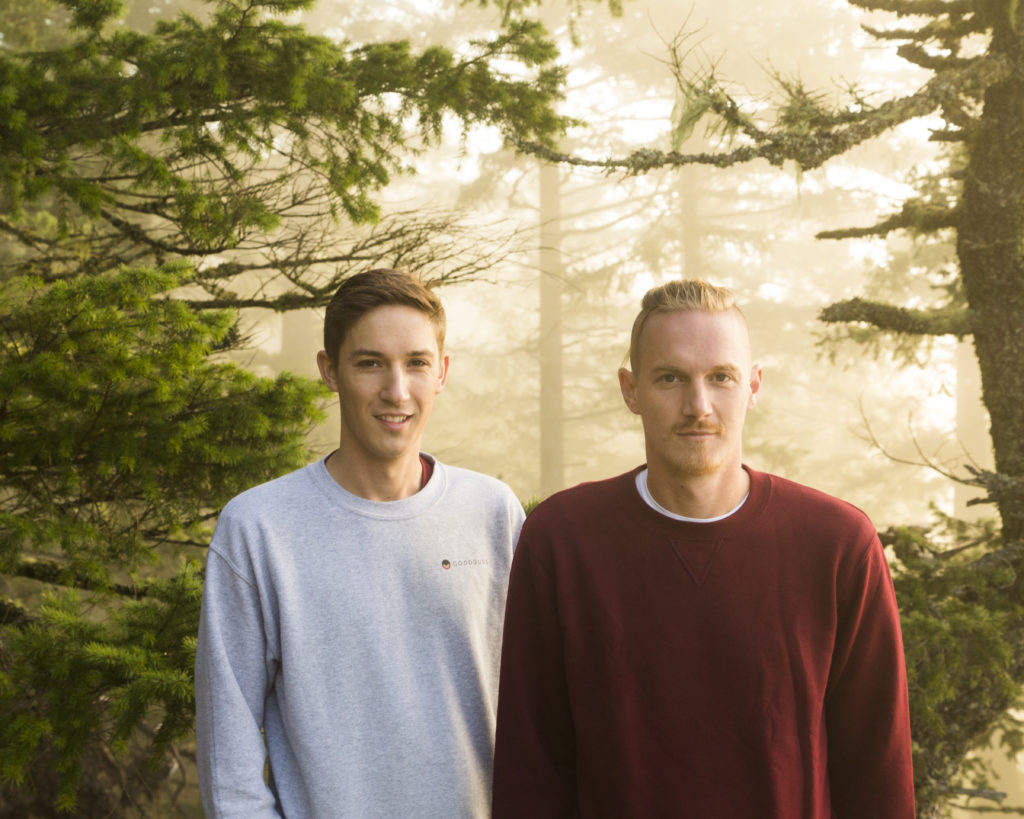
Tyler, the company’s CEO, began growing cannabis with his close friend Ryan Mant, the company’s outdoor cultivation manager, in 2007 under the MMAR and has been deeply involved in the cannabis community in Canada working with groups like Canadian Students for Sensible Drug Policy and the National Reefer Association.
Tyler asked his brother Alex to help round out he and Ryan’s experience, and they started building out a plan and a farm.
“It was a conscious decision to grow here rather than Ontario or other provinces,” says Alex. “Salt Spring is an awesome place to grow. We’re really grateful. The soils are incredible here. It’s right next to the pacific ocean so you get those salty breezes that really give the plants this kind of greasy quality which is amazing for making things like hash and rosin – a big part of what we’re releasing into market soon.”
(Our cannabis) has a unique kind of terroir and we’re finding that the Salt Spring Island outdoor definitely has a distinct pacific ocean quality to it. The flavour is really something special and unique.
Although they do grow indoors as well as outdoors – utilizing 12 retrofitted shipping containers – Alex says the outdoor production is the company’s real passion and focus, growing 12 acres of cannabis on the 17.3 acre property. The company grows organically, with their indoor crop certified by the Fraser Valley Organic Production Association (FVOPA) and their outdoor crop in the process of gaining full certification.
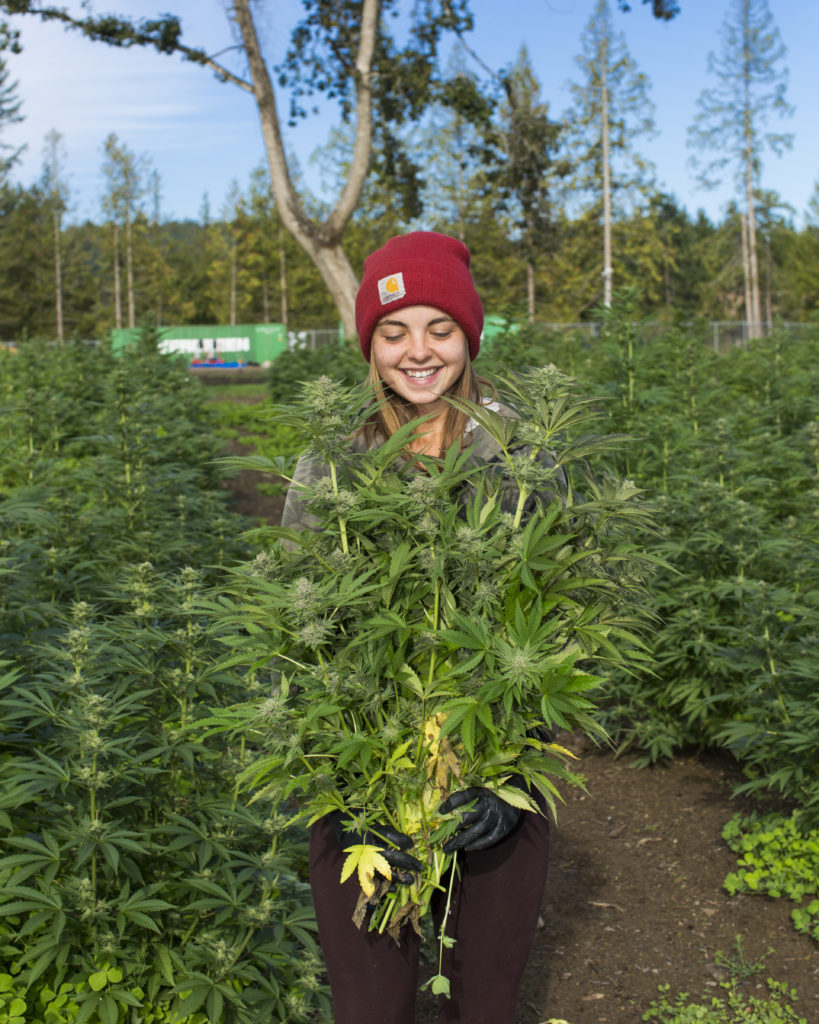
Their second passion, he says, is producing high quality, solventless extracts, which they hope to have on the consumer market by early July. Their indoor facilities have been producing flower, mostly for pre-rolls and dried flower which they have been selling into the Alberta and Saskatchewan market, as has some of their harvest from last year’s outdoor crop. But much of their outdoor crop was flash-frozen in anticipation of getting approval to sell solventless hash and rosin, which they received in late May.
Saskatchewan is an even more free market, letting us deal directly with the retailers. But we absolutely want to be in other provinces soon, too.
Tyler says they anticipate some small batches of hash rosin making its way into Alberta in early July, followed by Saskatchewan and possibly Ontario.
Although he would hope to have the products available in other provinces, especially their home of British Columbia, he says Alberta and Saksatchewan were good first steps for Good Buds due to the two provinces having lower barriers to entry than others. While some other provinces have very robust insurance requirements or require larger wholesale orders
“As a non public company, we have to watch our cash flow,’’ says Alex. “We picked Alberta because we thought they had done a fantastic job of opening so many retail stores so fast, and they had some more favourable terms, a lower barrier to entry for smaller companies to be able to get in there and operate without all these added expenses.
“Saskatchewan is an even more free market, letting us deal directly with the retailers. But we absolutely want to be in other provinces soon, too.”
Rumi says that while their 17 acres is a fairly large farm by some standards, the company feels it’s still a good size where they can focus on a quality product that benefits from the unique Salt Spring soil and air, which he compares to other well known outdoor regions like Humboldt county in Northern California.
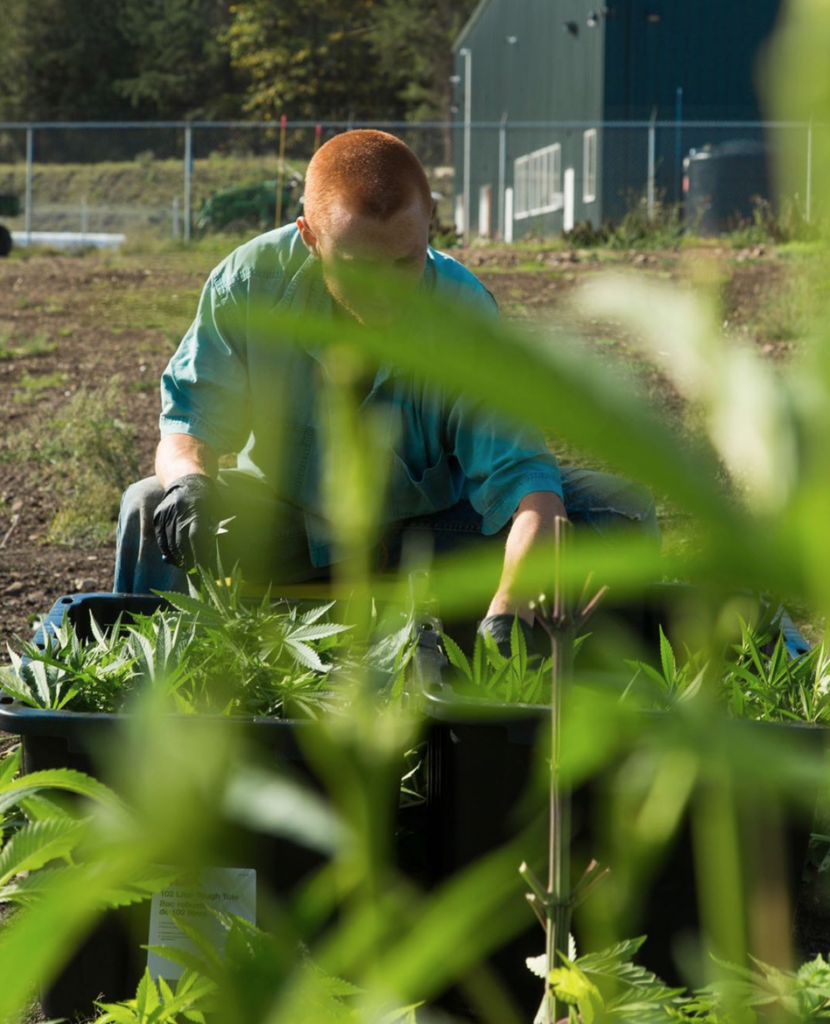
“What we’ve learned so far is that the soil here is awesome, and the weather is great. We’ve chosen strains that are resistant to problems like powdery mildew and botrytis, because when you get to September or October the rains can really kick in. So we picked genetics that are really robust against the rainy, wet weather.”
Although outdoor in Canada often is associated with lower quality, he says he knows that there are many consumers who understand the value of a well tended outdoor crop. While some other larger cannabis companies might be focusing on much larger scale outdoor farms for raw biomass for extracts for products like vape pens or edibles, Rumi says Good Buds wants to help elevate the perception in Canada of outdoor cannabis.
Craft brands are really going to dominate among the connoisseurs and the people who really care about weed.
“I guess from the black market days, people were bush-growing and not really putting any TLC into their outdoor crops, so it got a bit of a tarnished reputation, especially in BC, where there is so much good indoor. (But) if you go to a place like California, people respect outdoor as being on par with a lot of good greenhouse and indoor.
“The quality speaks for itself once you put it out there. (Our cannabis) has a unique kind of terroir and we’re finding that the Salt Spring Island outdoor definitely has a distinct pacific ocean quality to it. The flavour is really something special and unique. And that carries over to the hash and rosin we are making.”
One of the benefits of outdoor is also cost, he says, estimating last year’s outdoor crop at around 40 cents a gram, and expecting this year’s to be even less. But mostly it’s about the company’s philosophy of growing high quality, organic, outdoor cannabis. This year they have planted about 40,000 plants he says, estimating that will yield around 5-10,000 kilograms this season, much of which will be flash frozen for extract products like hash rosin.
It’s a passion project for us, so we want to focus on quality and bringing unique genetics to market, so we thought 12 acres is a good manageable space to work at while still at a decent enough scale to keep us going without sacrificing quality.
“The reason we’re doing outdoor is not for cheap biomass, but because we believe the terroir brings that unique flavour. It just makes for a good product that is a bit different. It also helps that you can get into the market without spending millions on facility costs. We’re staying private and really trying to make a go of it without all the public market wackiness. Craft brands are really going to dominate among the connoisseurs and the people who really care about weed. And on the other side of the market, I think it will really be a race to the bottom.”
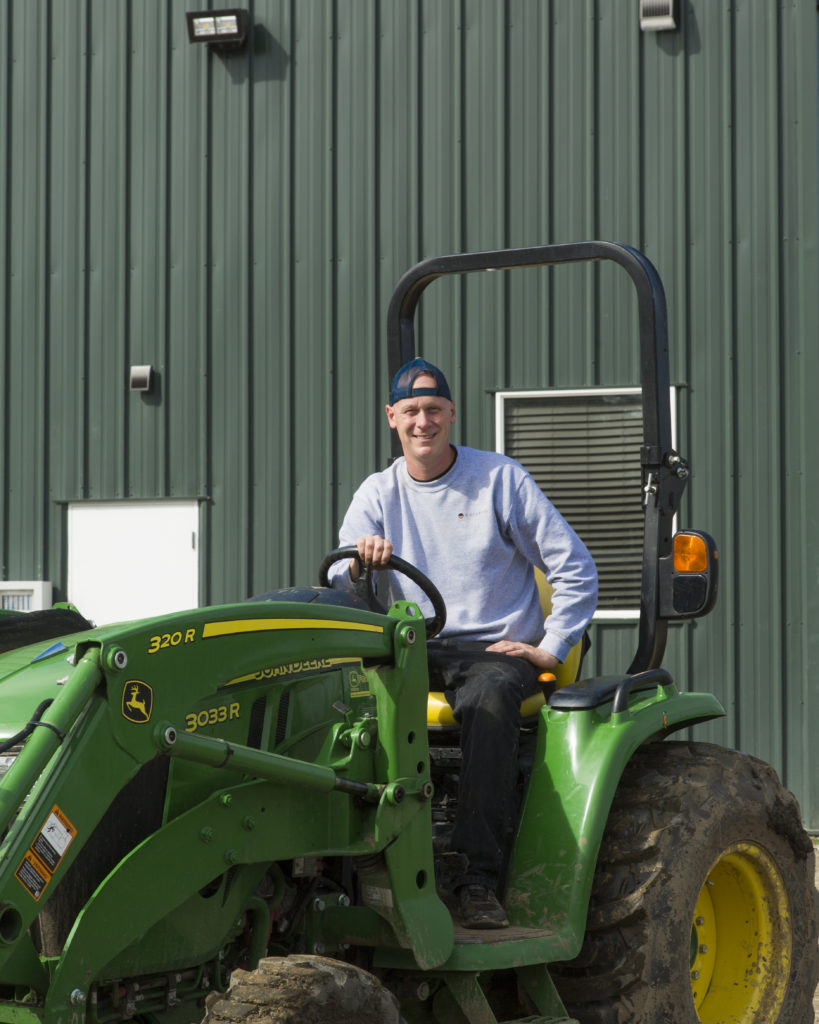
“We’re passionate about the plant,” he continues. “It’s a passion project for us, so we want to focus on quality and bringing unique genetics to market, so we thought 12 acres is a good manageable space to work at while still at a decent enough scale to keep us going without sacrificing quality.”
We would love to have farm gate. Salt Spring Island is a great tourist destination, especially more local BC tourism, and it would be great to have people visit the site, give tours, talk about the process and share that product directly.
Rumi says that, like many other growers, Good Buds is also eager for the chance to participate in direct “farm gate” sales in the future, once BC allows it.
“We would love to have farm gate. Salt Spring Island is a great tourist destination, especially more local BC tourism, and it would be great to have people visit the site, give tours, talk about the process and share that product directly. So we’re ready to look into that when they are.”
Rumi says he would love to also work with other BC growers who need to develop partnerships with processors in order to make it to market. As a standard licence holder authorized under the medical ACMPR regulations prior to October 17, 2018, Good Buds initial licence allowed for both cultivation and processing as one licence. Using two small, retrofitted trailers as a drying, curing and processing space, their capacity fluctuates with their outdoor harvest, which Rumi says means they could utilize slower times of the year to help process and package dried flower, pre-rolls and concentrates for other small batch, craft cannabis growers.
“We’re very interested in talking to other cultivators, especially local ones. There’s a lot of great cultivators in BC that have recently received their licenses, and we’re very interested in talking to people. Long term our approach is to focus on hash and rosin and becoming real leaders in the premium concentrate market. So if people have great products, we’re open to talking to them.
“I think there’s going to be a continued demand from customers for this kind of craft product. We’ve seen this in the beer industry as bigger brands are losing market share to more unique products. I think the legal market is going to evolve into that over time, too, where people really are chasing more flavour and unique products than THC levels or volume.
“I see a big craft industry really rising up in Canada and I think it’s already starting and we’re really happy to be one of the early movers in that area and one of the early craft brands that’s out there.”
